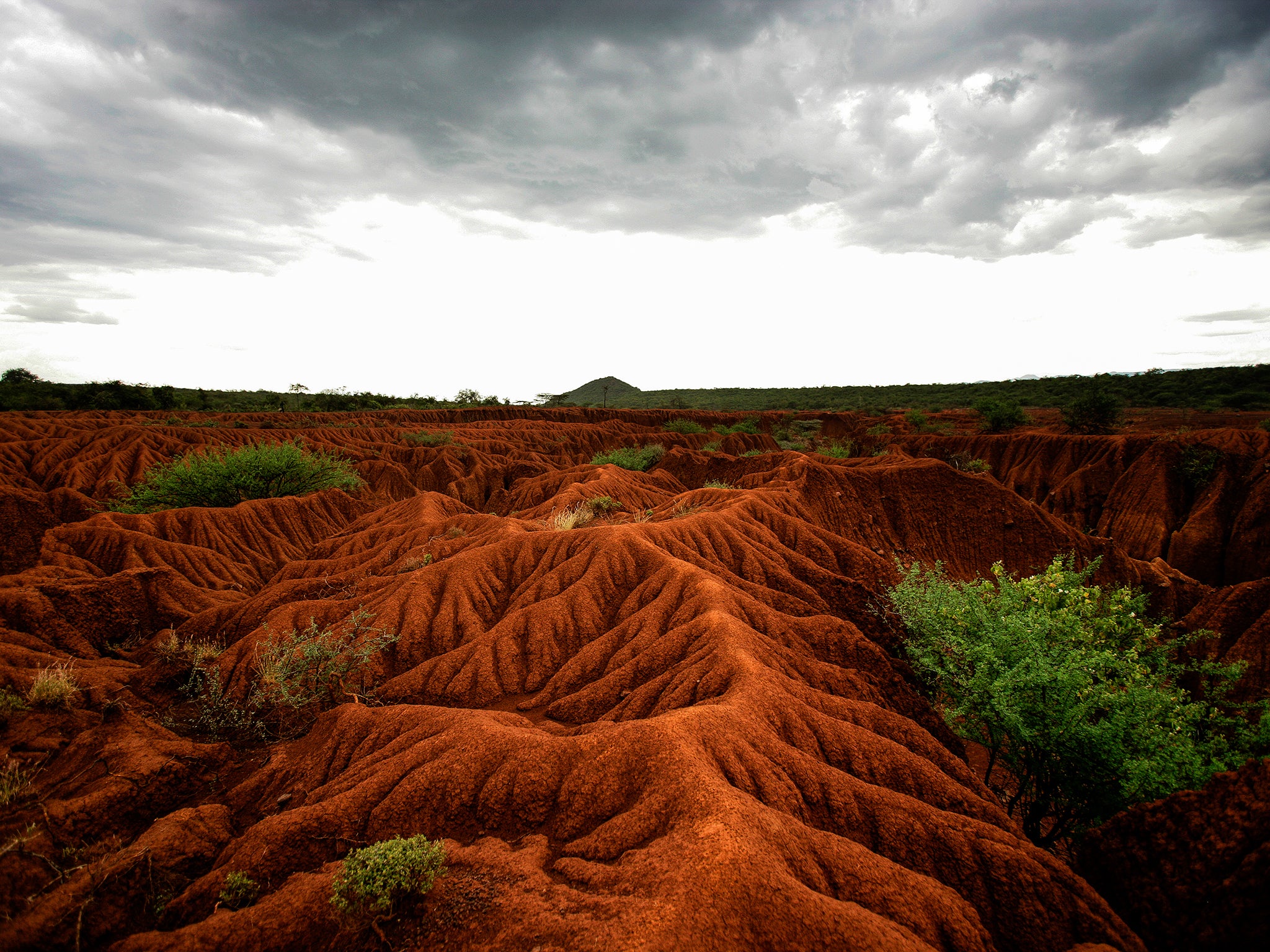Fertility of world's soil reaching peak that will threaten food supplies, scientists warn
More must be done to preserve the long-term viability of existing farmland, the group of leading scientists argue

The fertility of the world’s soil is reaching a peak that will threaten global food supplies this century unless more is done to preserve the long-term viability of existing farmland, according to a group of leading scientists.
Soil erosion and degradation, combined with the loss of agricultural land to urban sprawl and a booming global population, is one of the most pressing issues facing human security in the 21st century, they said.
The “green revolution” of the past half century, where intensive farming based on agro-chemicals managed to boost food production significantly, will not be able to sustain the growing population this century without greater emphasis on soil preservation and fertility, they said.
Much of the most productive cropland today is due to the “domestication” of wild soils brought about by modern farming practices. But these domesticated soils are seldom able to maintain the quality of their wild ancestral stock, the scientists write in a review of global soil fertility in the journal Science.
Climate change
Show all 7“The efforts to improve the management and conservation of domesticated soils, and the preservation of portions of their remaining wild ancestral stock, will be among the most important challenges this century,” said Ronald Amundson, professor of environmental science at the University of California, Berkeley.
Between 1970 and 2000, an area of agricultural land the size of Denmark became urbanised and in the next 20 years an area the size of Mongolia – some 1.5m sq km – will be swallowed up by city development, the scientists said.
“Our most productive soils have already been exploited and that demand for food production will continue to increase,” they said.
Dr Amundson said farming practices through the ages have caused the accelerated loss of soil through erosion and nutrient removal and this is one of the primary game-changers for the long-term, sustainable production of the soil – the “living epidermis” of the planet.
“Ever since humans developed agriculture, we’ve been transforming the planet and throwing the soil’s nutrient cycle out of balance. Because the changes happen slowly, often taking two to three generations, people are not [aware] of the transformation,” Dr Amundson said.
One of the key threats to future food security is the supply of artificial soil fertilisers, specifically phosphorus and potassium, which have to be mined from reserves held in rocks and minerals. The US reserve of phosphorus, for example, accounts for only 1 or 2 per cent of the world’s reserves, and it is due to be depleted within the next 20 or 30 years, he said.
“This could create political challenges and uncertainties. Morocco will soon be the largest source of phosphorus in the world, followed by China,” Dr Amundson said.
“These two countries will have a great deal of say in the distribution of those resources. Some people suggest we will see the emergence of a phosphorus cartel,” he said.
Many of the artificial nutrients added to soil, including nitrogen, become pollutants when washed away. They should be recycled in the same way that paper, glass, tin cans and plastics are recycled from domestic waste, Dr Amundson said.
“We should be able to do this with soil. The nutrients lost can be captured, recycled and put back into the ground. We have the skill set to recycle a lot of nutrients, but the ultimate deciders are the people who create policy,” he said.
“It’s not a scientific problem. It’s a societal problem.”
Subscribe to Independent Premium to bookmark this article
Want to bookmark your favourite articles and stories to read or reference later? Start your Independent Premium subscription today.

Join our commenting forum
Join thought-provoking conversations, follow other Independent readers and see their replies